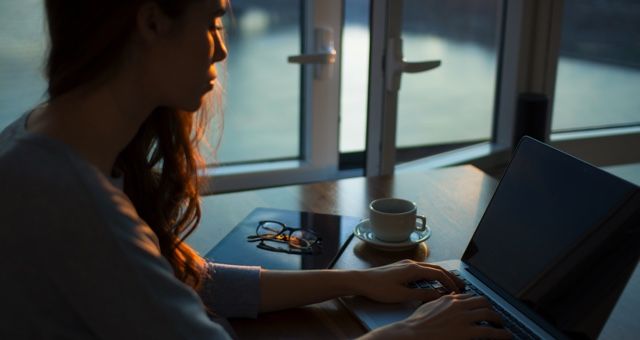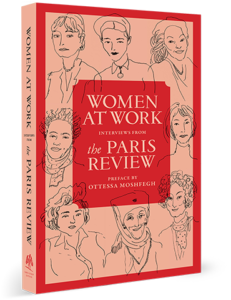
How 5 Quotes From WOMEN AT WORK Spoke To My New Beginning
Have you ever wanted a book, received a book, and let it linger until the perfect moment? For the holidays, my partner surprised me with the first volume of Women at Work from The Paris Review. I let the pretty thing decorate tables and shelves for months. When we relocated to the Gulf Coast from Northern California, I hugged it close. Little did I know, instructions on how to live waited inside.

In our Mississippi cottage rental, I ease deeper into freelancing. My book stacks take up space just as the sprawl of my reading, notebook, pens, and computer do. While I am privileged with coziness, my monstrous student loans have a way of making the money that passes through my hands not feel like mine. They urge me to consider every dollar. My yearning for a creative life multiplies that impulse. As Grace Paley insists, “If you want to write, keep a low overhead.”
“We absorb so much without being aware.” —Isak Dinesen
At the office, my protective crystals bulged in my skinny pants and clinked in my cardigan pockets. Removed from that environment, I see how much energy it took to neutralize the negativity, how much energy it took to fight for space and time to create. At a lagoon in December, I asked another cubicle worker, Do you feel like no one knows you, like you’re playing dress up? I had tired of dressing up. When I removed that unsatisfying chunk from my life, I made room for beauty to grow. Crystals still clink in my pockets, but their purposes have shifted.
“I tell my students one of the most important things they need to know is when they are their best, creatively.” —Toni Morrison
I am my creative best with wide-open days. Even an afternoon errand can derail my morning focus. It takes time coming and going, putting on and taking off pants and bras. After waking, after meditation, after or between reading someone else’s words, I am my best. In bed with my love already breathing slow and dreaming, I am my best. I write lines in the lamp’s glow, test their strength, float.
“I thought that the restlessness I was possessed by was, perhaps, some yearning, not so much for the sake of escape as for the sake of quest: a quest for unity, a search for wholeness.” —Jan Morris
In my cube, my thoughts returned to Annie Dillard, who said, “How we spend our days is, of course, how we spend our lives. What we do with this hour, and that one, is what we are doing.” I brainstormed what brought me joy. Eventually, I chased it. Funny, the only thing in my way was me.
“When I first sit down to write, these movements are all intuitive.” —Claudia Rankine
While drafting, I don’t look back. There’s something about the quick slam of keys that satisfies me, like something’s over my shoulder, like the flowers are listening, like the chirping birds outside root for me. After the move, I witness my writing practice change. I can follow my intuition: sit before words come, sit when the words stop, sit until they return. My ass is seated, and I am at the service of creativity. What happens is not because of me.
Before, with a packed schedule, sometimes the only things I wrote down included what I ate for dinner, what I dreamt, a snip of conversation I overheard at the market. Sometimes I focused solely on revision or editing. With freedom, so much new has found me. I know this opportunity to do what I love is rare, and it motivates me, even more, to be my most authentic self.
In the preface, Ottessa Moshfegh states, “Writing is a lonesome art.” And yet, reading these interviews gives me, and others, insight into the creative lives of these tenderhearted makers, these word warriors, and that is something to celebrate.














